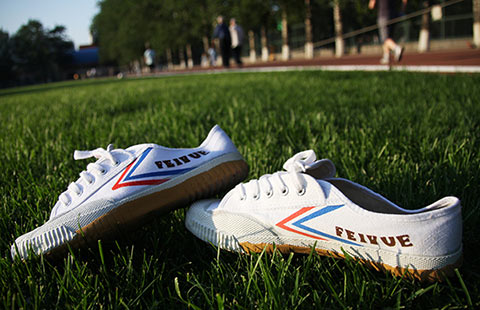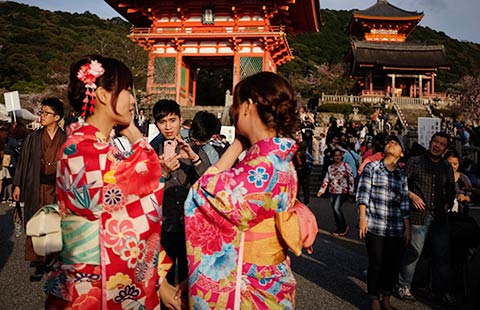Tax refund in Hainan faces gloomy start
(Xinhua) Updated: 2011-03-07 13:12HAIKOU - Two months after south China's tropical island province of Hainan inaugurated a tax refund program to woo foreign tourists, business at three designated shopping centers has not seen a big jump as expected.
"I didn't see many foreign buyers over the last two months," said Wu Xiuhua, a shop assistant at Shengsheng Department Store in the capital city of Haikou. "Instead, lots of native customers came to inquire about the rebate policy."
Shengsheng Department Store is one of three designated shopping centers carrying out the pilot refund scheme that took effect on January 1. The other two are Minsheng Department Store, also in Haikou, and Summer Day Department Store in Sanya, the southernmost city on the island, best known for its tropical climate and beaches.
According to the scheme, foreign tourists, or citizens from Hong Kong, Macao and Taiwan who have lived in China's mainland for no more than 183 days, are eligible for an 11 percent rebate of purchases.
However, the scheme might not be so attractive to foreign buyers, though Shan Rongsheng, general manger of Shengsheng Department Store, had projected a sales jump at his shopping center.
Haikou Customs received a total of 141 applications for tax rebates that totaled no more than 60,000 yuan ($9,000) in the first two months of this year, figures from Haikou Customs officials showed.
Shan said the main reason behind the low tax refunds was that there were not many foreign tourists in Hainan.
"So far as I know, there are more native tourists than foreign tourists when the tourist peak season comes in Hainan, and when foreigners tried to get the rebate, they could hardly provide necessary documentation to verify their purchases," said Shan.
Zhao Xiuwen, marketing director at Shengsheng Department Store, said some popular commodity items were excluded from the rebate scheme, and that was also to blame for the program's low start.
The refund scheme covers 324 items that fall into 21 categories, such as clothing, cosmetics, watches and jewelry, but commodities of wide consumption like food, beverages, tobacco and alcohol are not included in the rebate program.
Also, the 11 percent tax refund on luxury items such as cosmetics, watches and jewelry, is not attractive enough when compared with Hong Kong, the shopping paradise that offers more discounts or rebates, Zhao said.
Further, strict rules deterred the tax refund for foreign tourists, said Wang Keqiang, deputy director with the Hainan Commerce Department.
Wang said the scheme demanded that tourists receive their refunded taxes at airports in Haikou and Sanya. However, a large number of foreign tourists would leave China from other cities, such as Guangzhou, Shanghai or Shenzhen, as there are few outbound international flights from Hainan.
Some experts pointed out that the government needed to further promote and advertise the refund scheme to make it known to more foreign tourists.
"I wasn't aware of the refund scheme before I came to Hainan," a Russian tourist who did not give her name complained. She said she enjoyed traveling in Hainan, but knew nothing about the scheme.
In spite of these difficulties in the implementation of the refund scheme, it still has a bright future, said Wang Yiwu, director of the Institute of China's Modern Economic Theory of Hainan University.
But Wang said the government should further polish the scheme to make it more easily accessible to foreign tourists.
Further, more commodities should be added to the list of the scheme and more tax-refund stores should be opened, Wang noted.
- Central bank pumps money into market
- Alibaba to claim 20% of Thai online payment firm
- China's ICBC lists $400m bond on Nasdaq Dubai
- Central bank pumps more money into market
- Infrastructure investment needed to support economic growth: McKinsey
- More lock-up shares eligible for trade
- China approves seven new IPOs
- China economy stabilizing, additional policy support possible: report






















